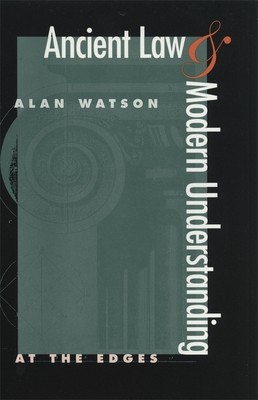
- We will send in 10–14 business days.
- Author: Alan Watson
- Publisher: University of Georgia Press
- ISBN-10: 0820341150
- ISBN-13: 9780820341156
- Format: 14 x 21.6 x 1.1 cm, minkšti viršeliai
- Language: English
- SAVE -10% with code: EXTRA
Reviews
Description
In Ancient Law and Modern Understanding Alan Watson proposes that ancient law is relevant and important for understanding history, theology, sociology, and literature. "Law, though technical," he writes, "is not remote from scholarship on other matters, and law is a central element in society."
From Homeric Greece to present-day Armenia, Watson examines law's influence. Without a sensitivity to technical legal language, scholars of literature or history miss much: the use of puns in Plautus, Sulla's claim that Julius Caesar was descended from a slave, the relationship between the Synoptic Gospels. Legal history is an essential tool for understanding society, Watson argues, but it must be applied with knowledge of how law moves from one society to the next, legal reliance on authority, juristic concern with apparent trivia, and the impact on legal growth.EXTRA 10 % discount with code: EXTRA
The promotion ends in 22d.20:41:10
The discount code is valid when purchasing from 10 €. Discounts do not stack.
- Author: Alan Watson
- Publisher: University of Georgia Press
- ISBN-10: 0820341150
- ISBN-13: 9780820341156
- Format: 14 x 21.6 x 1.1 cm, minkšti viršeliai
- Language: English English
In Ancient Law and Modern Understanding Alan Watson proposes that ancient law is relevant and important for understanding history, theology, sociology, and literature. "Law, though technical," he writes, "is not remote from scholarship on other matters, and law is a central element in society."
From Homeric Greece to present-day Armenia, Watson examines law's influence. Without a sensitivity to technical legal language, scholars of literature or history miss much: the use of puns in Plautus, Sulla's claim that Julius Caesar was descended from a slave, the relationship between the Synoptic Gospels. Legal history is an essential tool for understanding society, Watson argues, but it must be applied with knowledge of how law moves from one society to the next, legal reliance on authority, juristic concern with apparent trivia, and the impact on legal growth.

Reviews